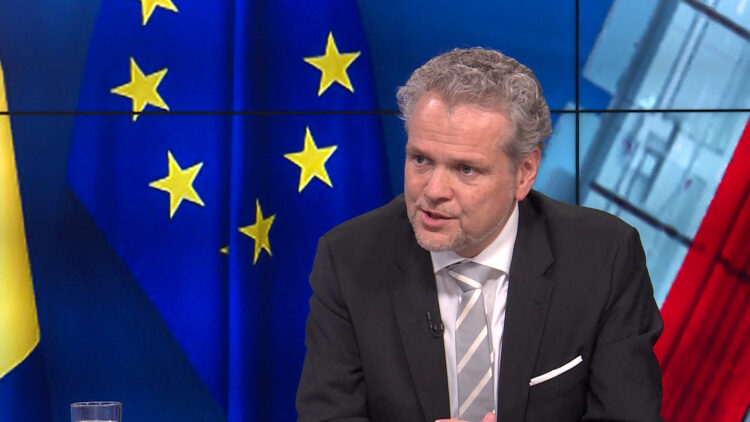
In his latest blog post titled 'Our partners are the people,' European Union Ambassador in Bosnia and Herzegovina Johann Sattler said he was aware of the challenges lying ahead of Bosnia and Herzegovina when he took office a year ago but that even back then and now he has always believed that many of those difficulties could be overcome.
“Some hold a cynical view that many of the diplomats and experts who come to this country are content with simply going through the motions, refusing to acknowledge that the political system is irredeemably flawed and that the prospect of European integration is no more than a pipe dream. I argue the contrary. The European Union is committed to ensuring that BiH is irreversibly on track to become a member of the Union. We are working on this goal together with our BiH partners – and not just political partners – in order to deliver concrete benefits to citizens. The EU’s commitment is reflected in millions of euros of assistance annually. It is reflected in our constant support to the country through advice on and facilitation of its political, economic and structural priorities for BiH to achieve necessary progress,” wrote the ambassador.
While he agrees that the political system is flawed, Sattler also believes that this can be improved as in any other country.
“We know perfectly well that it is not likely to be changed by those who benefit from the status quo but there are also a number of those among them who are deeply committed and ready to work for change. Citizens have a powerful interest in changing the ways in which issues with a profound impact on their everyday lives are currently handled. And EU integration is all about delivering change. It is about strengthening and upholding the rule of law, and putting citizens – not parties – at the centre of political life,” he stressed.
He recalled that soon after the Council of Minister was appointed, following a months-long stalemate, the EU Council welcomed the European Commission Opinion on the country's membership application that identified 14 key priorities the country needs to work on.
“In April 2020, the BiH Presidency formally committed to the implementation of reforms necessary to fulfil the 14 key priorities. It set out an inclusive process aimed at accelerating BiH’s progress on its integration path. There have already been tangible dividends. In May 2020, Bosnia and Herzegovina was able to take an active and constructive part in the EU-Western Balkans Zagreb Summit, thanks to crucial last-minute preparations,” Sattler wrote, reminding of several other steps the authorities took on the EU path.
But, he also emphasised the EU's cooperation with other partners in Bosnia and Herzegovina such as teachers, doctors, entrepreneurs, activists and various other professionals “who have confidence in this country’s future and who are actively engaged in making that future better than its past.”
“They are why I believe that the status quo can be changed – and changed for the better. I also believe that the immediate and long-term steps being taken to battle COVID-19 and its consequences – with the EU’s support – can further empower progressive elements in BiH society,” he added.
Sattler warned that “a lot of precious time” has been lost as Bosnia and Herzegovina is keeping a not so satisfying pace in the EU accession process but that there is still room for optimism.
“After what has been the most unusual and challenging year for us all, I am even more confident that the grounds for optimism outweigh those for cynicism as well as in my commitment to redouble my efforts in favour of progress of the country and its people on the EU path. If anything, this past year has shown that no global crisis can stand in the way of the EU aspirations of citizens in Bosnia and Herzegovina, as the partnership between the EU and people across the country only deepened. As Europe embarks on a tough journey of recovery and we jointly paint a new vision of the future, citizens’ voices must lead the way,” he concluded.




